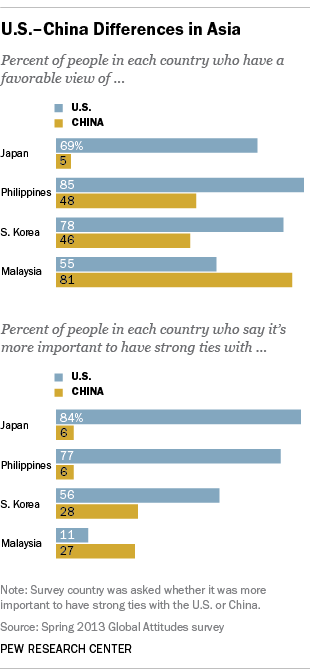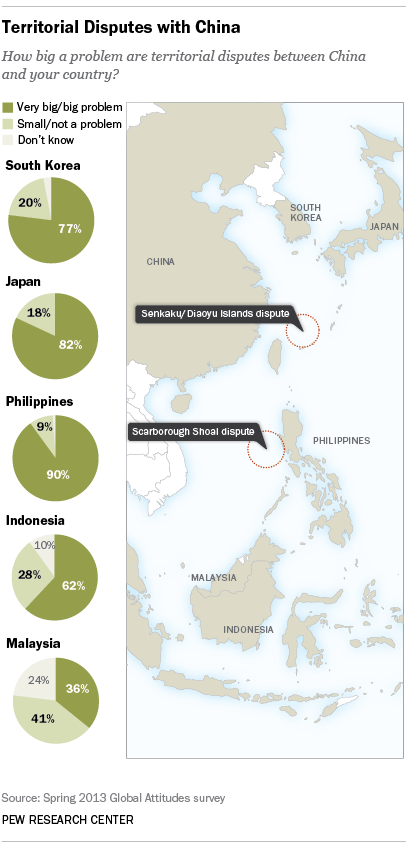President Obama’s trip to Asia this week takes him to Japan, South Korea, the Philippines and Malaysia, but many of his discussions with foreign leaders will center around a country not on his itinerary: China. America’s allies in the region are nervous about China’s growing power and its increasing assertiveness, and as the Obama administration “pivots” American foreign policy toward Asia, many in the region would welcome closer ties with the United States.

Obama has received high ratings in the four nations he will visit. A Pew Research Center survey conducted last spring found big majorities of Filipinos (84%), South Koreans (77%) and Japanese (70%) expressing confidence in the American president to do the right thing in world affairs. He was somewhat less popular in Malaysia; still, roughly half (51%) in the Southeast Asian majority-Muslim nation gave Obama a positive rating.
In the Philippines, South Korea and Japan, Obama’s efforts to deepen security and economic ties with the U.S. are likely to find a receptive audience. When asked which is more important, having strong ties with China or the U.S., most of those surveyed in these three countries said the latter. In contrast, half of Malaysians volunteered that it’s equally important to maintain strong ties with both major powers.
America’s overall ratings are significantly higher than China’s in Japan, South Korea and the Philippines. This is especially true in Japan, where 69% had a favorable view of the U.S., while only 5% said the same about China. Ratings for the U.S. were overwhelmingly positive in the Philippines and South Korea, while China received mixed reviews in both countries. Malaysia is again the exception: A narrow majority of Malaysians had a favorable opinion of the U.S., but roughly eight-in-ten (81%) gave China a positive rating.

Over the last few years, territorial disputes in the South and East China Seas have heightened tensions between China and its neighbors, and large majorities in the Philippines (90%), Japan (82%) and South Korea (77%) said these disputes are a big problem. Malaysia is once more something of an outlier – just 36% of Malaysians said territorial disputes with China are a major problem.
Similarly, China’s growing military power generates strong concerns in the region. A remarkable 96% of Japanese believed China’s increasing military strength is a bad thing; 91% of South Koreans and 68% of Filipinos agreed (only 20% in Malaysia felt this way).
Of course, China’s economic power is also on the rise, and as our surveys have illustrated, in many countries around the world, people see the economic balance of power shifting, with China overtaking the U.S. for the top spot. However, this is not the case in the countries Obama will visit. In all four, more people believed the U.S. is still the globe’s leading economic power.
